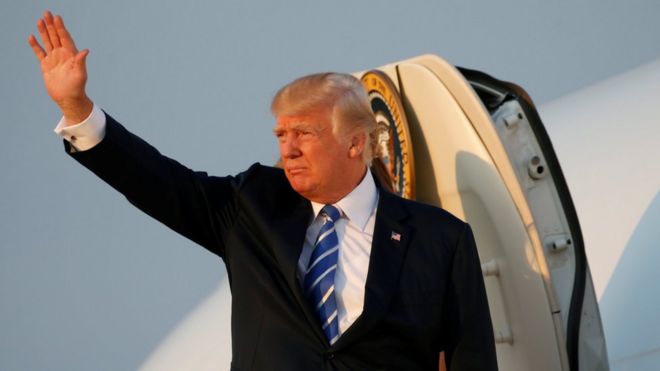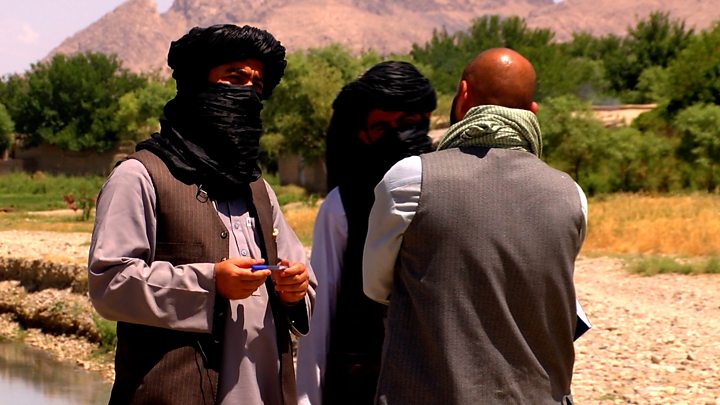 REUTERS
REUTERS
President Donald Trump has said a hasty US withdrawal from Afghanistan would leave a vacuum for terrorists to fill.
He said his original instinct was to pull US forces out, but he now wanted to avoid the mistakes made in Iraq.
He said he wanted to shift from a time-based approach in Afghanistan to one based on conditions on the ground and said he would not set out deadlines.
"America will work with the Afghan government, so long as we see commitment and progress," he said.
He also warned Pakistan that the US would no longer tolerate the country offering "safe havens" to extremists.
But Mr Trump refused to be drawn on how many extra troops, if any, would be deployed. He had been expected to say another 4,000 would be sent to Afghanistan, the number General John Nicholson, the top US military commander in the country, requested.
Criticising previous administrations, he said: "We will not talk about numbers of troops or our plans."
However US Defence Secretary Jim Mattis indicated some sort of increase was on the cards, saying in a statement "several" US allies "have also committed to increasing their troop numbers".
US combat operations against the Taliban officially ended in 2014, but special forces have continued to provide support to Afghan troops.
Current US troop numbers in Afghanistan are about 8,400.
The Afghan government continues to battle insurgency groups and controls just half of the country.
- Can Afghan military turn the tide in Taliban fight?
- Four days behind the Taliban front line
- Tough school? War, illiteracy and hope in Afghanistan
Mr Trump has previously supported pulling troops out of the conflict, which began under President George W Bush in 2001 after the 9/11 attacks.
"I took over a mess, and we're going to make it a lot less messy," Mr Trump said when asked about Afghanistan earlier this month.
"We're not winning," he told advisers in a meeting in July.
His defence secretary has argued a US military presence is necessary to fight off threats from Islamist militants.
Defence Secretary Jim Mattis visited Afghanistan over the weekend, saying he was satisfied with the administration's new strategy.
Former White House strategic adviser Steve Bannon had called for the withdrawal of all US forces, arguing the war was unwinnable.
But he was fired by the president on Friday.
BBC News

No comments:
Post a Comment